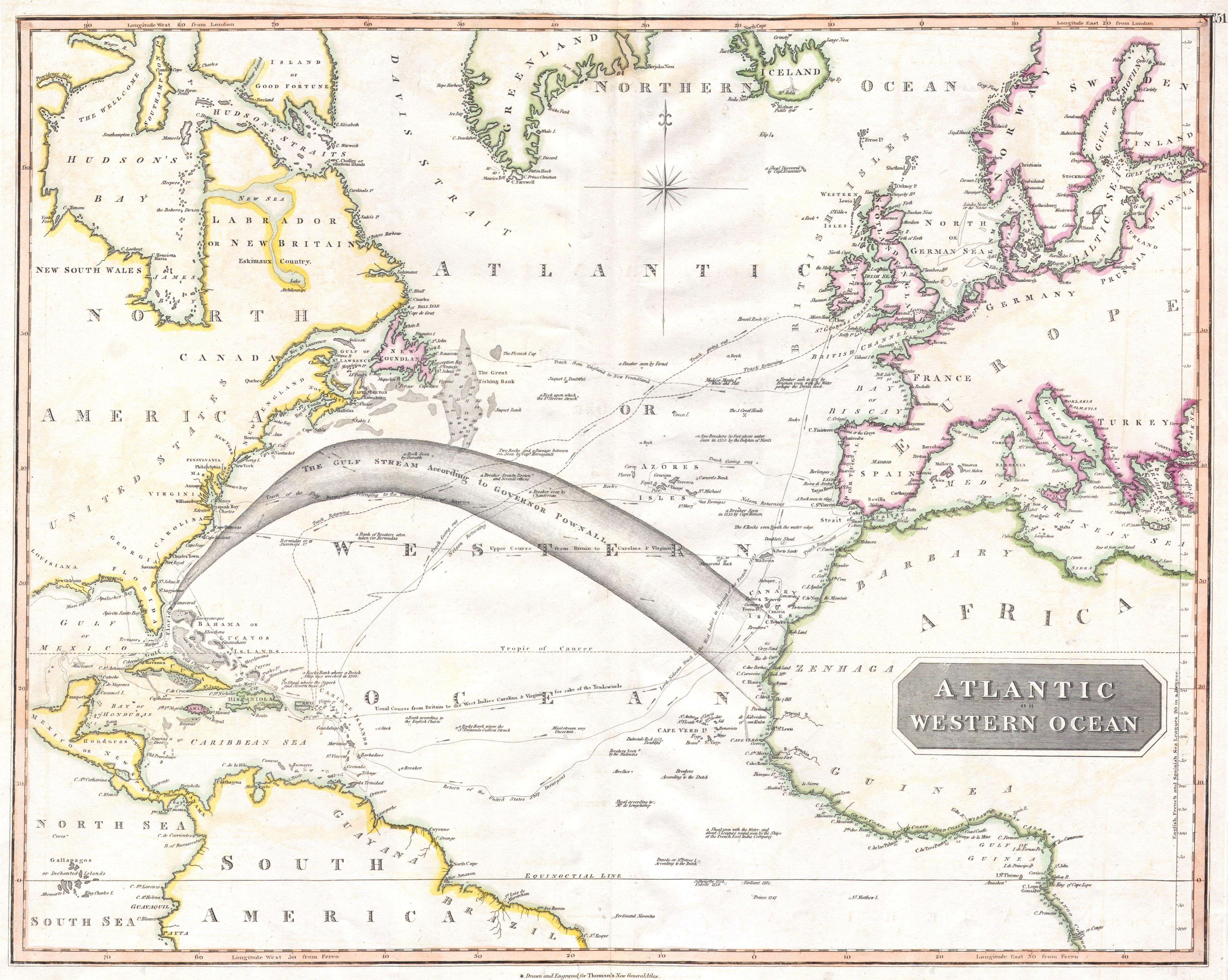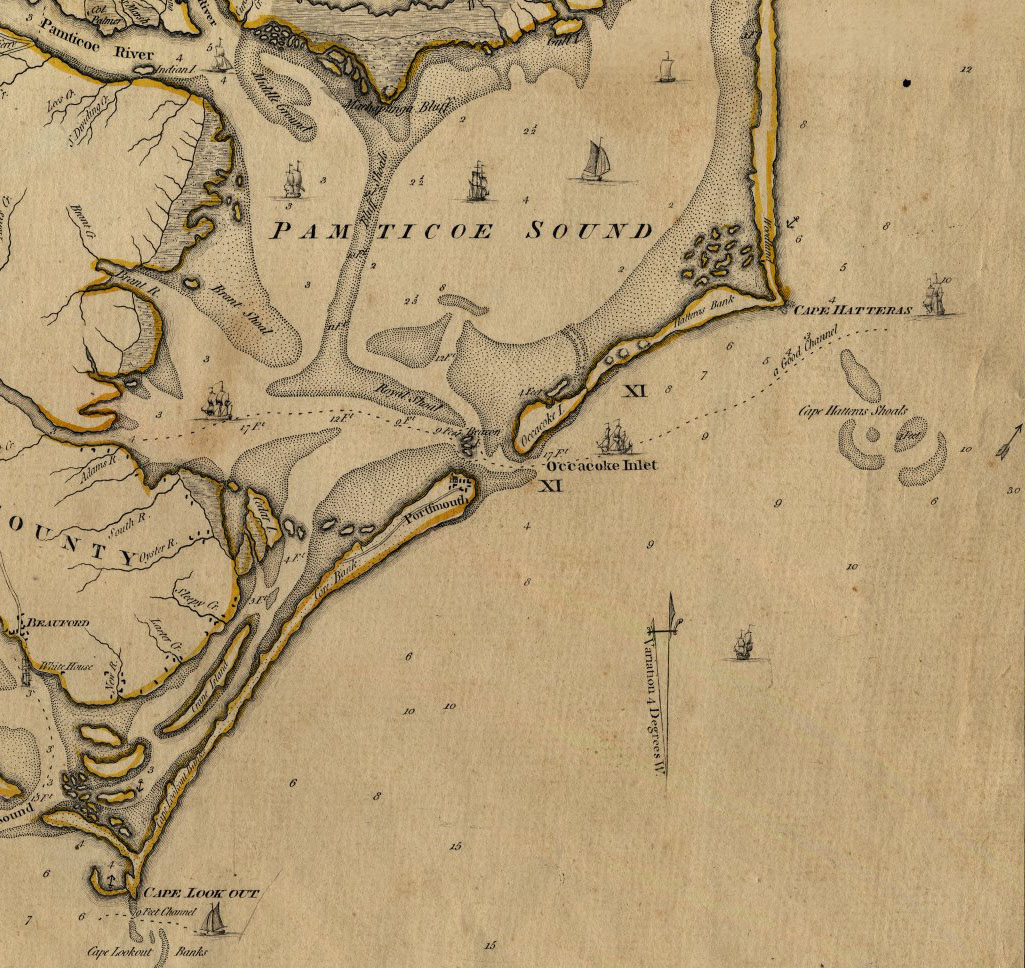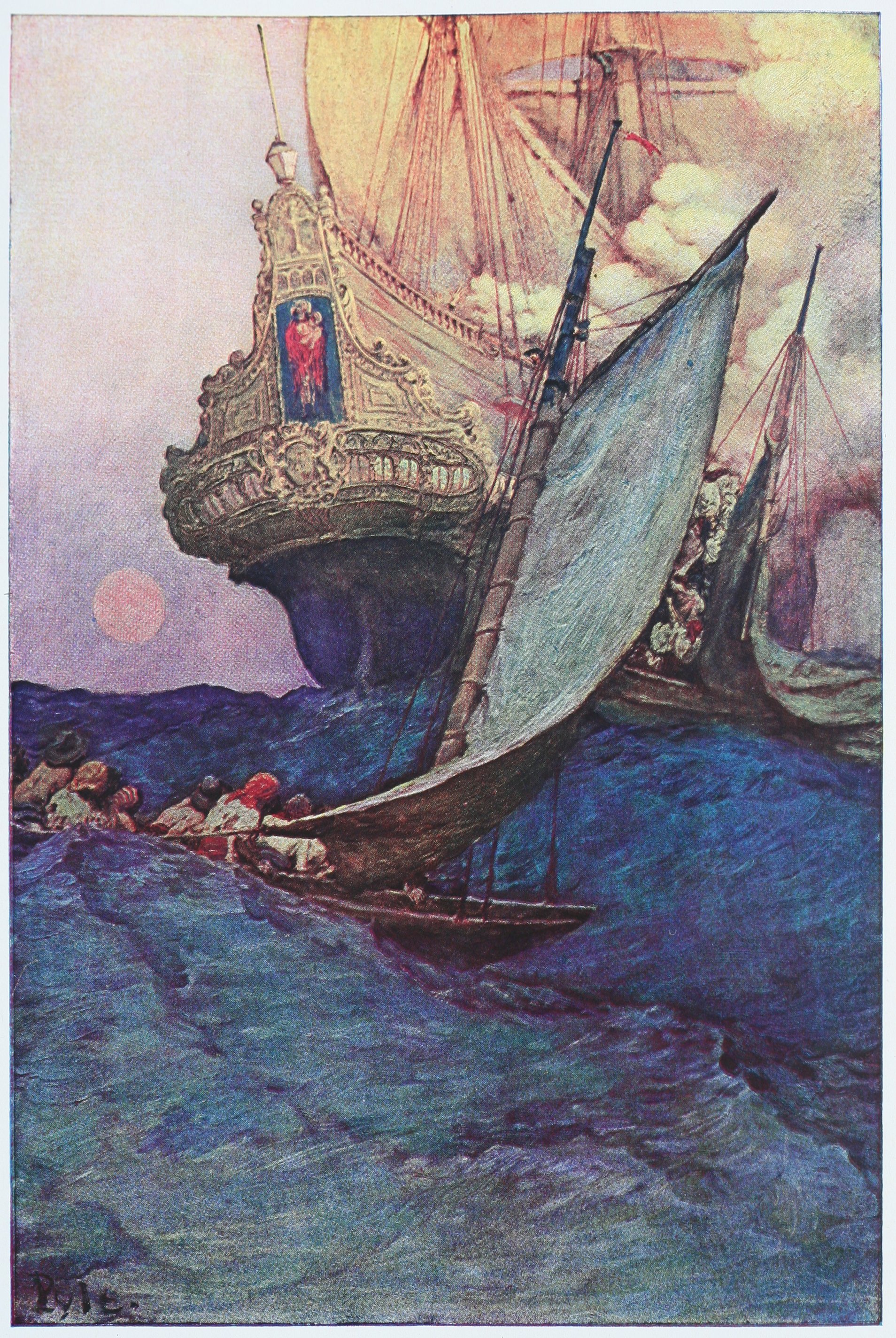|
Piracy In The Atlantic Ocean
The Atlantic World refers to the period and interconnected history of the European colonization of the Americas from around 1492 to the early nineteenth century. This term refers to the expanded naval presence of European powers at the time (Spain, Portugal, Britain, and others) for exploration, trade, and migration. Piracy became increasingly prevalent during this era due to various natural factors that diminished the abilities of law enforcement across vast areas, further reducing state control over many coastal regions and increasing competition between List of modern great powers, European powers. Some of the best-known pirates of this era were the The Golden Age of Piracy, Golden Age Pirates (c. 1650–1730), who roamed the seas of North America, Africa, and the Caribbean coasts. Background In the mercantile economy of the Atlantic world, piracy emerged as a profitable venture, targeting the trade routes that made European Colonialism, colonization possible. Defying tr ... [...More Info...] [...Related Items...] OR: [Wikipedia] [Google] [Baidu] |
Blackbeard
Edward Teach (or Thatch; – 22 November 1718), better known as Blackbeard, was an English pirate who operated around the West Indies and the eastern coast of Britain's North American colonies. Little is known about his early life, but he may have been a sailor on privateer ships during Queen Anne's War before he settled on the Bahamian island of New Providence, a base for Captain Benjamin Hornigold, whose crew Teach joined around 1716. Hornigold placed him in command of a sloop that he had captured, and the two engaged in numerous acts of piracy. Their numbers were boosted by the addition to their fleet of two more ships, one of which was commanded by Stede Bonnet, but Hornigold retired from piracy toward the end of 1717, taking two vessels with him. Teach captured a French slave ship known as , renamed her '' Queen Anne's Revenge,'' equipped her with 40 guns, and crewed her with over 300 men. He became a renowned pirate. His nickname derived from his thick black bear ... [...More Info...] [...Related Items...] OR: [Wikipedia] [Google] [Baidu] |
Alexander Exquemelin
Alexandre Olivier Exquemelin (also spelled ''Esquemeling'', ''Exquemeling'', or ''Oexmelin'') (c. 1645–1707) was a French, Dutch, or Flemish writer best known as the author of one of the most important sourcebooks of 17th-century piracy, first published in Dutch as ''De Americaensche Zee-Roovers'', in Amsterdam, by Jan ten Hoorn, in 1678. Life Born about 1645, it is likely that Exquemelin was a native of Honfleur, France, who on his return from buccaneering settled in Holland, possibly because he was a Huguenot. In 1666 he was engaged by the French West India Company and went to Tortuga, where he worked as an indentured servant for three years. There he enlisted with the buccaneers, in particular with the band of Henry Morgan, whose confidante he was, probably as a barber-surgeon, and remained with them until 1674. Shortly afterwards he returned to Europe and settled in Amsterdam where he qualified professionally as a surgeon, his name appearing on the 1679 register of the ... [...More Info...] [...Related Items...] OR: [Wikipedia] [Google] [Baidu] |
Colombia
Colombia, officially the Republic of Colombia, is a country primarily located in South America with Insular region of Colombia, insular regions in North America. The Colombian mainland is bordered by the Caribbean Sea to the north, Venezuela to the east and northeast, Brazil to the southeast, Peru and Ecuador to the south and southwest, the Pacific Ocean to the west, and Panama to the northwest. Colombia is divided into 32 Departments of Colombia, departments. The Capital District of Bogotá is also the List of cities in Colombia by population, country's largest city hosting the main financial and cultural hub. Other major urban areas include Medellín, Cali, Barranquilla, Cartagena, Colombia, Cartagena, Santa Marta, Cúcuta, Ibagué, Villavicencio and Bucaramanga. It covers an area of 1,141,748 square kilometers (440,831 sq mi) and has a population of around 52 million. Its rich cultural heritage—including language, religion, cuisine, and art—reflects its history as a co ... [...More Info...] [...Related Items...] OR: [Wikipedia] [Google] [Baidu] |
Venezuela
Venezuela, officially the Bolivarian Republic of Venezuela, is a country on the northern coast of South America, consisting of a continental landmass and many Federal Dependencies of Venezuela, islands and islets in the Caribbean Sea. It comprises an area of , and its population was estimated at 29 million in 2022. The capital and largest urban agglomeration is the city of Caracas. The continental territory is bordered on the north by the Caribbean Sea and the Atlantic Ocean, on the west by Colombia, Brazil on the south, Trinidad and Tobago to the north-east and on the east by Guyana. Venezuela is a presidential republic consisting of States of Venezuela, 23 states, the Venezuelan Capital District, Capital District and Federal Dependencies of Venezuela, federal dependencies covering Venezuela's offshore islands. Venezuela is among the most urbanized countries in Latin America; the vast majority of Venezuelans live in the cities of the north and in the capital. The territory o ... [...More Info...] [...Related Items...] OR: [Wikipedia] [Google] [Baidu] |
Central America
Central America is a subregion of North America. Its political boundaries are defined as bordering Mexico to the north, Colombia to the southeast, the Caribbean to the east, and the Pacific Ocean to the southwest. Central America is usually defined as consisting of seven countries: Belize, Costa Rica, El Salvador, Guatemala, Honduras, Nicaragua, and Panama. Within Central America is the Mesoamerican biodiversity hotspot, which extends from southern Mexico to southeastern Panama. Due to the presence of several active geologic faults and the Central America Volcanic Arc, there is a high amount of seismic activity in the region, such as volcanic eruptions and earthquakes, which has resulted in death, injury, and property damage. Most of Central America falls under the Isthmo-Colombian cultural area. Before the Spanish expedition of Christopher Columbus' voyages to the Americas, hundreds of indigenous peoples made their homes in the area. From the year 1502 onwards, Spain ... [...More Info...] [...Related Items...] OR: [Wikipedia] [Google] [Baidu] |
Buccaneer
Buccaneers were a kind of privateer or free sailors, and pirates particular to the Caribbean Sea during the 17th and 18th centuries. First established on northern Hispaniola as early as 1625, their heyday was from the Restoration in 1660 until about 1688, during a time when governments in the Caribbean area were not strong enough to suppress them. Martinique was a home port for French buccaneers as well as pirates like Captain Crapeau. Originally the name applied to the landless hunters of wild boars and cattle in the largely uninhabited areas of Tortuga and Hispaniola. The meat they caught was smoked over a slow fire in little huts the French called ''boucans'' to make ''viande boucanée'' – ''jerked meat'' or '' jerky'' – which they sold to the corsairs who preyed on the (largely Spanish) shipping and settlements of the Caribbean. Eventually the term was applied to the corsairs and (later) privateers themselves, also known as the Brethren of the Coast. Although c ... [...More Info...] [...Related Items...] OR: [Wikipedia] [Google] [Baidu] |
Colonization
475px, Map of the year each country achieved List of sovereign states by date of formation, independence. Colonization (British English: colonisation) is a process of establishing occupation of or control over foreign territories or peoples for the purpose of cultivation, exploitation, trade and possibly settlement, setting up coloniality and often colonies. Colonization is commonly pursued and maintained by, but distinct from, imperialism, mercantilism, or colonialism. The term "colonization" is sometimes used synonymously with the word "settling", as with colonisation in biology. Settler colonialism is a type of colonization structured and enforced by the settlers directly, while their or their ancestors' metropolitan country ('' metropole'') maintains a connection or control through the settler's activities. In settler colonization, a minority group rules either through the assimilation or oppression of the existing inhabitants, or by establishing itself as the de ... [...More Info...] [...Related Items...] OR: [Wikipedia] [Google] [Baidu] |
Ad Valorem Tax
An ''ad valorem'' tax (Latin for "according to value") is a tax whose amount is based on the value of a transaction or of a property. It is typically imposed at the time of a transaction, as in the case of a sales tax or value-added tax (VAT). An ''ad valorem'' tax may also be imposed annually, as in the case of a real or personal property tax, or in connection with another significant event (e.g. inheritance tax, expatriation tax, or tariff). In some countries, a stamp duty is imposed as an ''ad valorem'' tax. Operation All ad valorem taxes are collected according to the determined value of the taxed item. In the most common application of ad valorem taxes, namely municipal property taxes, public tax assessors regularly assess the property owner's real estate in order to determine its current value. The determined value of the property is used to calculate the annual tax collected by the municipality or any other government entity upon the property owner. Ad valorem ... [...More Info...] [...Related Items...] OR: [Wikipedia] [Google] [Baidu] |
Letter Of Marque
A letter of marque and reprisal () was a Sovereign state, government license in the Age of Sail that authorized a private person, known as a privateer or French corsairs, corsair, to attack and capture vessels of a foreign state at war with the issuer, licensing international military operations against a specified enemy as reprisal for a previous attack or injury. Captured Prize money, naval prizes were judged before the government's admiralty court for condemnation and transfer of ownership to the privateer. A common practice among Europeans from the late Middle Ages to the 19th century, cruising for enemy prizes with a letter of marque was considered an honorable calling that combined patriotism and profit. Such legally authorized privateering contrasted with unlicensed captures of random ships, known as piracy, which was universally condemned. In practice, the differences between privateers and pirates were sometimes slight, even merely a matter of interpretation. The te ... [...More Info...] [...Related Items...] OR: [Wikipedia] [Google] [Baidu] |
License
A license (American English) or licence (Commonwealth English) is an official permission or permit to do, use, or own something (as well as the document of that permission or permit). A license is granted by a party (licensor) to another party (licensee) as an element of an agreement between those parties. In the case of a license issued by a government, the license is obtained by applying for it. In the case of a private party, it is by a specific agreement, usually in writing (such as a lease or other contract). The simplest definition is "A license is a promise not to sue", because a license usually either permits the licensed party to engage in an illegal activity, and subject to prosecution, without the license (e.g. Fishing license, fishing, Driver's license, driving an automobile, or operating a Broadcast license, broadcast radio or television station), or it permits the licensed party to do something that would violate the rights of the licensing party (e.g. make copie ... [...More Info...] [...Related Items...] OR: [Wikipedia] [Google] [Baidu] |
Government
A government is the system or group of people governing an organized community, generally a State (polity), state. In the case of its broad associative definition, government normally consists of legislature, executive (government), executive, and judiciary. Government is a means by which organizational policies are enforced, as well as a mechanism for determining policy. In many countries, the government has a kind of constitution, a statement of its governing principles and philosophy. While all types of organizations have governance, the term ''government'' is often used more specifically to refer to the approximately 200 list of sovereign states, independent national governments and government agency, subsidiary organizations. The main types of modern political systems recognized are democracy, democracies, totalitarian regimes, and, sitting between these two, authoritarianism, authoritarian regimes with a variety of hybrid regimes. Modern classification systems also ... [...More Info...] [...Related Items...] OR: [Wikipedia] [Google] [Baidu] |







